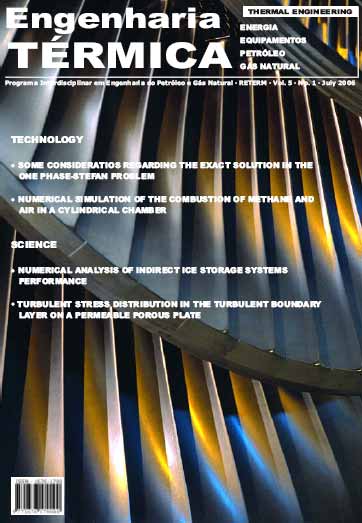OPPORTUNITIES OF INTEGRATING DESALINATION TO COGENERATION FOR BRAZILIAN CONDITIONS
DOI:
https://doi.org/10.5380/reterm.v5i1.61667Keywords:
desalination, cogeneration, natural resources planningAbstract
One of the major problems in this century refers to the availability of potable water, necessary to the survival of populations. The world population is continually increasing and natural resources are proportionally decreasing, and the development of potable water production techniques demands intensive efforts. Electric power requirement is also necessary to the development of nations. Desalination processes are widely used in countries with low offer of potable water. Technologies nowadays in use are multi-stage-flash distillation (MSF), multi-effect distillation (MED) and reverse osmosis (RO) process. In MSF and MED processes, the main technique is distillation. Reverse osmosis technique relies on the osmotic principle, in which a solvent passes through a membrane. Since the middle of 1950, these desalting techniques are widely used mainly in the Middle East countries, where water shortage is almost absolute. Although uncommonly conceived, discussing the implementation of desalination processes in association to cogeneration systems in Brazil is a necessary task for the long-term planning. In this way, this paper proposes to review
the successful experiences presented in the literature as a way of establishing how electric power and fresh water production can be produced from seawater desalting processes in an optimized way. Another objective pursued in this paper is stimulating more attention to this matter, that deserves discussing the skill staff formation and the know-how of such technologies in the strategic planning to the water resource management, specially because these investments require a considerable time for human resources development and the knowledge of the most adequate technology to be implemented for the integration of desalting and cogeneration units.
Downloads
Published
How to Cite
Issue
Section
License
Direitos Autorais para artigos publicados nesta revista são do autor, com direitos de primeira publicação para a revista. Em virtude da aparecerem nesta revista de acesso público, os artigos são de uso gratuito, com atribuições próprias, em aplicações educacionais e não-comerciais.



